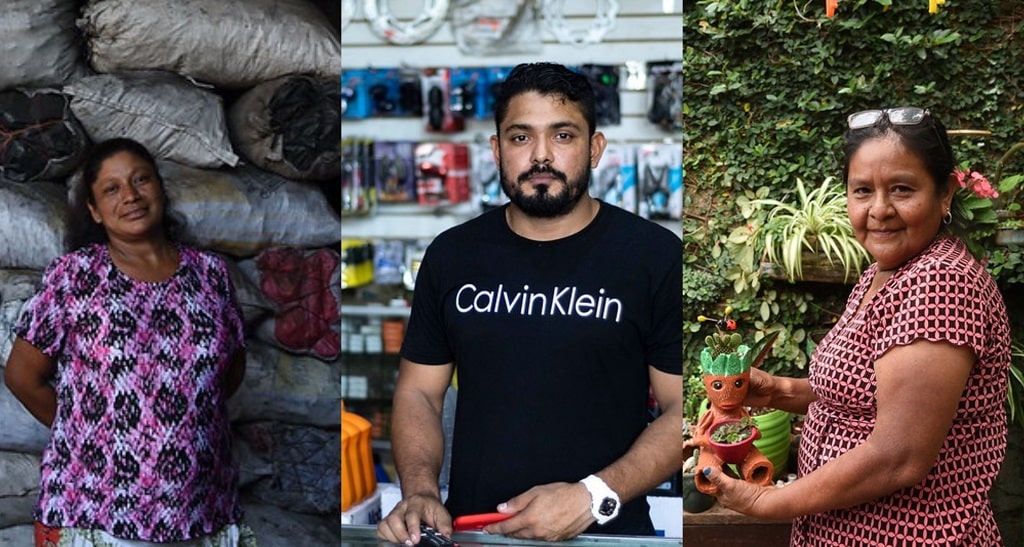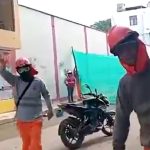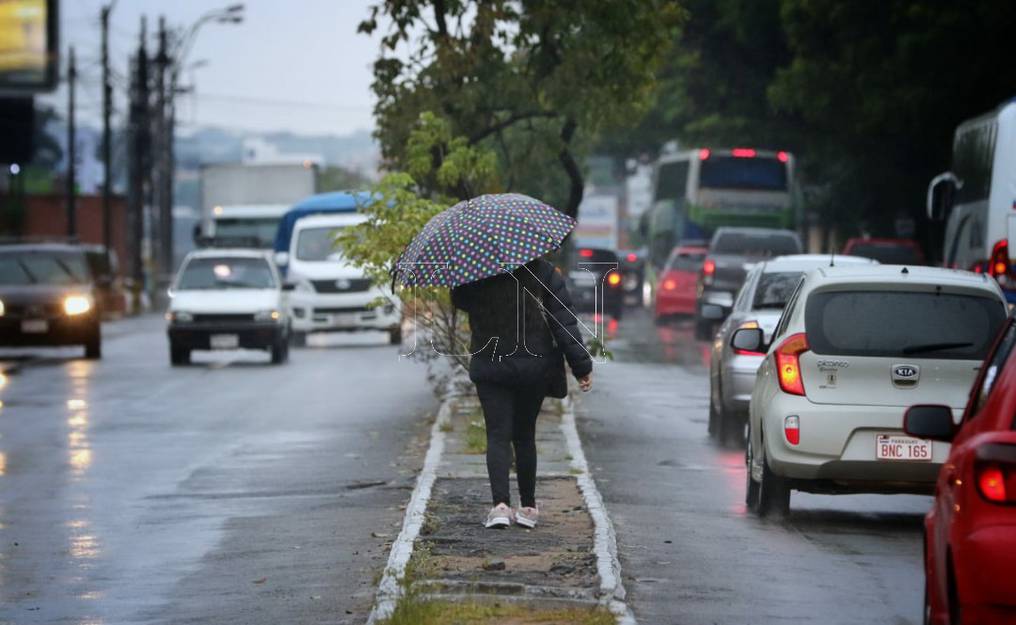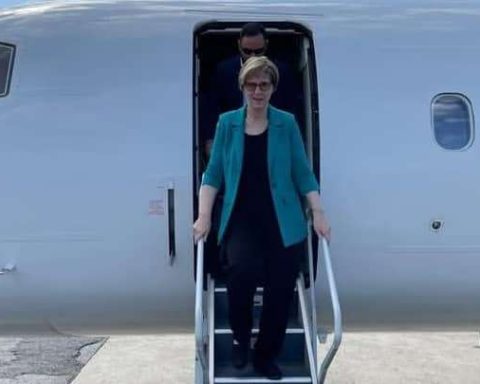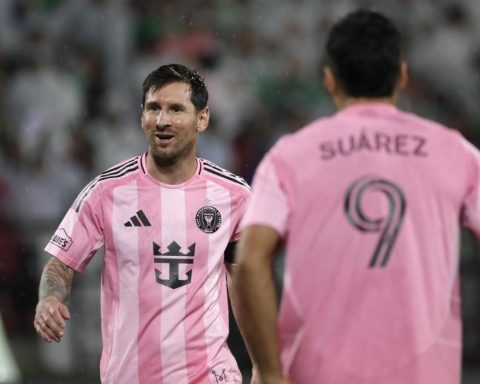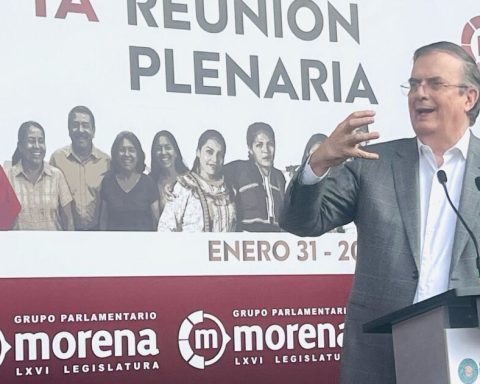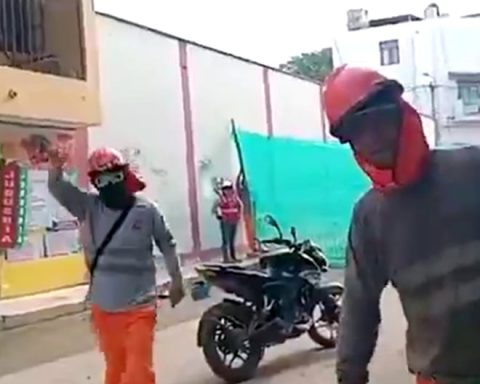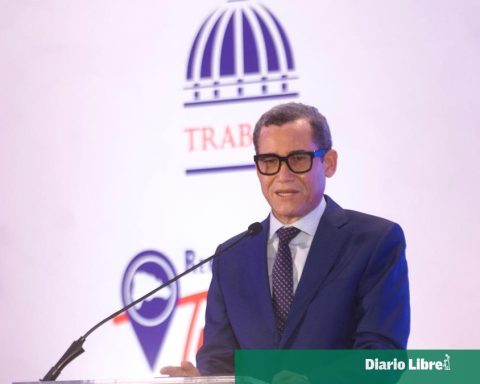overwhelmed by a economic crisis that has lasted four years, small Nicaraguan companies are juggling to maintain their presence in the market and stop laying off personnel to make their accounts balance, while are victims of extortion by the Ortega regimewhat are you looking for raise more resources at any cost. However, there are some successful companies that stand out as exceptions.
Hansell Maltez, owner of a workshop where motorcycles are repaired and parts are sold, in Managua; Sofía Guerrero, who from Catarina sells furniture and ornamental plants all over the country, and Azalia García, who continues –and grows– with her sale of charcoal, firewood, eggs, kerosene and lottery in Masaya, are three small businessmen who have maintained the bellows, despite the crisis.
The three microentrepreneurs run solid businesses that produce not only profits to pay salaries, but also to keep growing.
Emanuel Motor Parts
A year agoHansell Maltez managed a buoyant business, in which he combined his motorcycle repair shop with the sale of spare parts for that same type of vehicle, and confessed that he temporarily put aside plans to import his own spare parts, out of prudence.
What he did not put a stop to was the idea of importing used tires for his clients’ motorcycles. Interviewed a year later, he says that he “had a project to bring in used tires. We wanted to, and we were able to do it with the support of Fundeser”.
He recalls that, as part of the process, “we made calculations, numbers, analyzed the market, and saw that no one was bringing used motorcycle tires”, so he located a supplier in Europe, and traveled to Spain to meet with him.
The result is that “he brought me a container with 5,000 used motorcycle tires, from the Dunlop, Pirelli, Michelin, Bridgestone and Metzeler brands, which we are selling through Facebook, and in person at the workshop,” he explained.
As an example, he mentioned that a new tire of the Michelin brand for a courier motorcycle (one of the simplest) costs 3,000 cordobas, while he sells used tires of the same brand for 1,300 cordobas (with 90% of useful life).
“The market has received us very well; although I detect that many clients do not know about this, ”he says. In any case, he perceives that “word of mouth has been the key to growth.” And that the price of the spare parts that it sells has had an increase of 40% and even more, due to the rise in the cost of maritime transport.
“Before the crisis [logística global], a freight from Europe cost 8000 euros. Now it costs 11,000, supposedly because of the increase in fuel prices, logistics, the lack of containers”, he detailed without forgetting that “the price of motorcycle oil rises month by month, but I think it is due to the voracity of local companies”, he opined.
His effort has allowed him to keep operating his two stores in Managua. He narrates that sometimes, the main place is too small to serve twenty or more customers a day, who take their motorcycles to be repaired, whether they are looking for something as complete as an overhaul, or as simple as a friction check, a change of oil, or periodic maintenance.
This means that, technically, their business has not grown ‘despite the crisis’, but rather thanks to the crisis, which has forced many to discard the dream of buying a car, and replace it with that of acquiring a motorcycle, while others they see in this type of vehicle an option to seek life and circumvent unemployment.
The plans for this year place him in Europe again at the end of September, looking for ways to expand the used tire business and, in one or two years, stop buying spare parts from a local supplier, and start importing them himself.
That the children sell the plants

When Sofía Guerrero (58 years old) was a six-year-old girl, she got up at one in the morning to travel with her mother from Catarina to Chinandega, to where they were going to sell plants. Five decades later, Doña Sofía sends her own daughters to sell plants (and furniture, and handicrafts) even greater distances.
The difference is that they go in the truck that she was able to buy with the profits from the business, and the loans from the FDL Financial, which offers her work credit, and credits for home improvement.
“The business continues, but hand in hand with my daughter, who takes care of the longest trips so that I don’t get too tired. What I do is manage it from my home: I see how the sales are going, and how we make it grow. I only accompany her when we go to Managua to do business,” she explained.
His is a truly family business, involving his children, including his recent critical care graduate, and his wife, who is an OB/GYN. They both sell furniture online, “and they don’t scrub as much as they used to, when I went with the basket. Now, they do it through Facebook”, he says, comparing the times.
If in the basket that she took to Chinandega as a child she could only accommodate a few plants, her daughter also carries furniture, handicrafts, fruits… “a little of everything to adjust the cost of fuel, maintenance of the truck, food.”
On the way back they bring germinated coconut, fish and shrimp, from Bilwi; curd and cheese, from Juigalpa; corn or chilotes from Jalapa; dry coconut, from the Rama, etc., to sell them in the Pacific. “We are always looking for ways to increase what is taken or brought,” so that the numbers add up, he explains.
The medium-term goal is to save money to combine it with what they give him from the sale of the current truck, to buy another one. “I want to replace it with one of the year,” he said, and continue with the plan to expand his rental business, including building another house to increase the availability of rental spaces.
Firewood, coal, lottery, eggs, kerosene… what will you take?

Selling firewood, or charcoal, doesn’t seem like a very glamorous business, unless you knew the size of the operation that Azalia García runs in Masaya, in which she can easily have stocks valued at 100,000 cordobas.
A year ago, while waiting for the birth of her daughter, she sold firewood, charcoal, eggs (wholesale and retail), lottery, and charged for taking care of the motorcycles of those who go to the market that is in front of her house. Today, a year later, she, her daughter-in-law and her daughter take turns caring for little Gabriela Alejandra, while managing all their lines of business.
Although at this time the price of coal is high (because of the rainy season, a hundred bags are priced at 16,000 cordobas, when until a few months ago it cost between 10,000 and 11,000 cordobas. In comparison, at Christmas it reaches 20 000), sales are maintained because “people need it to cook”, which, in general terms, is also valid for the sale of firewood and kerosene.
The next income, in order of importance, is the parking and care of motorcycles, which is maintained, although it is a little affected by the police plan to remove the motorcycles that are undocumented, although having made the leap to Lotto wholesaler, allows his eldest son to employ.
He explains that they have not given up selling eggs, because being a basic food, they are consumed all the time. The problem is that it doesn’t generate much profit: it buys a box for 120 cordobas, and sells it for 140, but for that very reason, people keep buying it.
His most recent expansion was made possible thanks to another loan authorized by the FDL Financial Institution, money with which he bought a freezer to sell Big Cola brand products.
In these times whenmoney doesn’t pay”, and the client who previously carried 20 bags of charcoal, now only carries 15; or the one who used to buy 100 bags, now only buys 80, the business is maintained because “we keep fighting, getting up early, treating the customer well, with charisma”, in what is also “joint work with my daughter, my son, my daughter-in-law and my husband,” she says. And, although in the last year they had to lose two employees to stay afloat (the one who packed coal and the one who took care of the motorcycles), he continues with the goals of working hard and taking advantage of opportunities to continue the business.
